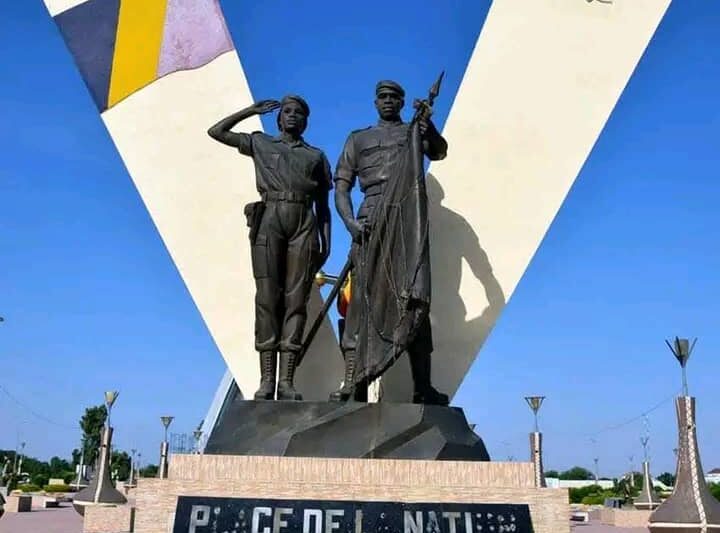Foiled ambush of presidential palace in N’Djamena: Foreign minister says assailants did not have war weapons and their attempt was disorganised and ‘probably not a terrorist attack’.
The government of Chad says 18 of 24 assailants have been killed in a foiled attack on the presidential palace.
The attackers attempted to storm the presidential compound in Chad’s capital, N’Djamena, on Wednesday night but were “neutralised” by security forces.
One security guard was killed and two injured. Six assailants were wounded. They are in detention.
Abderaman Koulamallah, the foreign minister of Chad, said in a live broadcast a few hours after the foiled attack that the situation was “completely under control”.
“An attempt at destabilisation has been foiled. Nineteen people died, 18 assailants and one soldier,” he said.
He described the assailants, who were armed with knives and machetes – no firearms – as “disorganised, ill-intentioned and drunk”.
“The attack was a disordered and incomprehensible attempt” carried out by people who were “intoxicated”.
“They stabbed four guards, killing one and seriously injuring two others. A fourth guard was also injured, but his life is not in danger,” Koulamallah said.
The assailants managed to penetrate a short distance into the compound before being “neutralised” by security forces.
“The destabilisation attempt was put down,” he said.
“I arrived on the scene shortly after the shooting and I was impressed by the military deployment. We have a very good army and the Chadians can sleep soundly. Our country is well guarded.”
The attack was “probably not a terrorist act”, Koulamallah said, and referred to the attackers as drunken “Pieds Nickeles”, a reference to a French comic featuring hapless crooks.
“These are people who came from a certain neighbourhood of N’Djamena that I will not name,” he said. “They did not have war weapons, their attempt was disorganised and completely incomprehensible.”
The 24 assailants drove to the compound in a few vehicles that “seemed to break down” at the entrance. They walked to the palace gates and began stabbing security guards. One was killed and two wounded.
Guards inside the premises shot at the assailants, killing 18 and wounding six.
President Mahamat Déby Itno was inside the palace at the time but Koulamallah said he was safe.
Koulamallah praised the vigilance of palace guards, describing the attackers as disorganised and likely under the influence of alcohol and drugs.
Omar Yana, a Radio Ndarason International (RNI) journalist in N’Djamena, said the armed men parked close to the presidential palace, pretending that their car was faulty, before launching an attack on security forces guarding the entrance to the palace.
“The security forces were on high alert and repelled the attack, killing 18 of the 24 armed men.”
Bursts of gunfire rang out near the presidential compound and the military blocked surrounding streets.
Yana said the assailants were found to be wearing amulets or talisman charms – thought to ward off bad luck, evil and danger.
“They were said to be drunk and there were no signs of them being members of an Islamic sect as people suspected.”
Yana said authorities had not released any further information about the assailants. The motive of the attack was not known – it was being described as a “destabilisation attempt”.
“Despite the chaos of Wednesday night, all is now calm and normalcy has returned. It was a difficult night for the people of N’Djamena, particularly for those living close to the presidential palace.”
Yana said heavy military equipment was deployed and all routes linking to the presidential compound were closed by government forces on Wednesday night. They were later reopened.
“As of now, everything has returned to normal, with war trucks being taken back to their former positions and the bodies of the armed men cleared.
“For those who did not witness what happened, it is as if nothing happened, and they’ve all gone back to their daily routines.”
The attack came hours after China’s foreign minister, Wang Yi, who was on an official visit to the country, met government officials in N’Djamena. He congratulated President Déby on reestablishing constitutional order.
At the end of December, Chad held parliamentary, regional and municipal elections for the first time in more than a decade.
Officials in N’djamena said the elections would formally end a three-year “transitional period” that followed the 2021 death of longtime leader Idriss Déby Itno and the takeover by his son, Mahamat Idriss Déby, who was confirmed as the country’s president in May last year.
The December parliamentary elections were boycotted by the main opposition party, Les Transformateurs.
The results are still pending. Analysts have predicted that the outcome could strengthen Déby’s hold on power.
Rights groups said without full opposition participation, the election was not likely to be fair.
AYSHA MUSTAPHA KOLOMI








